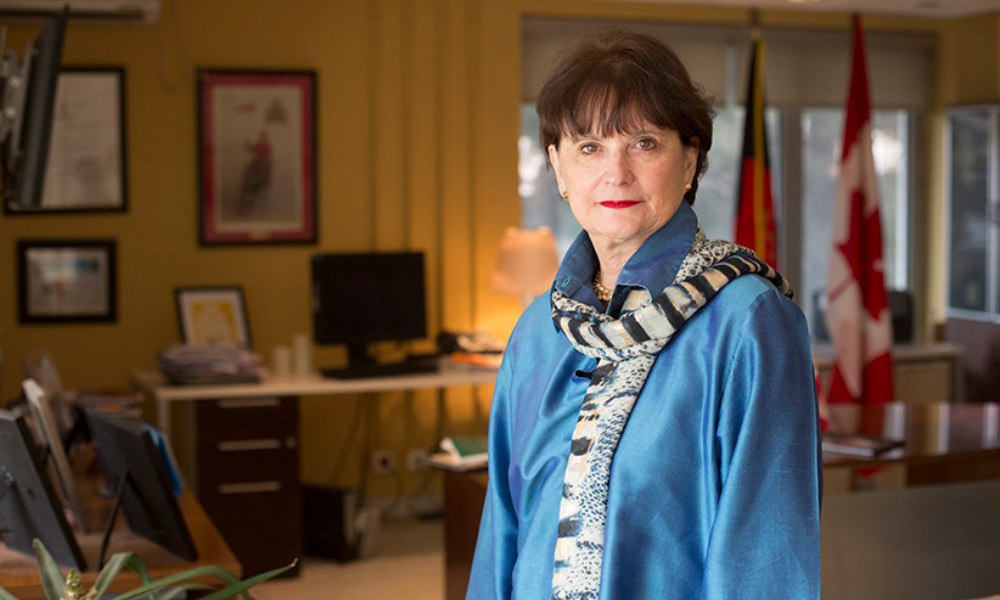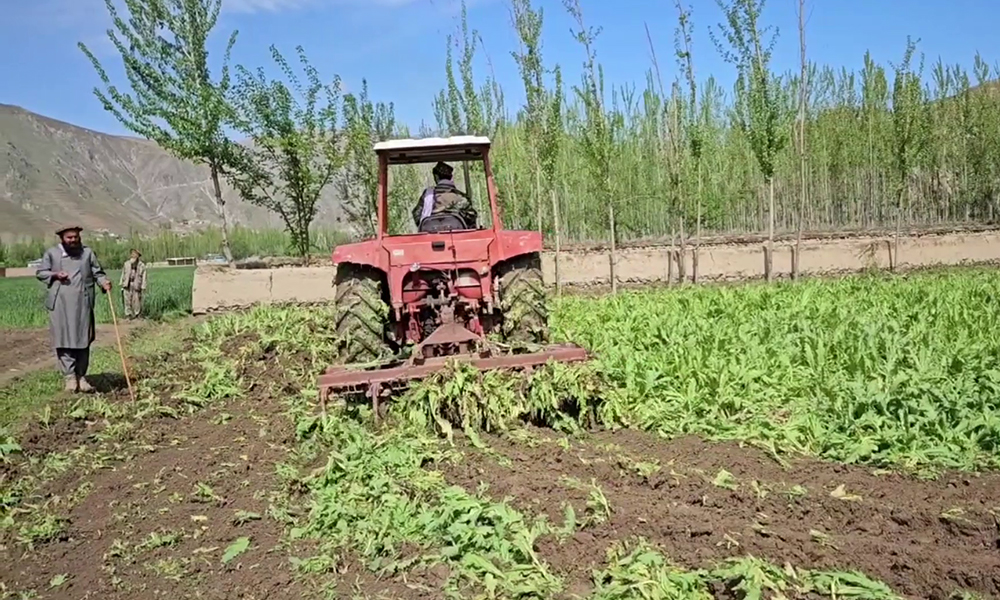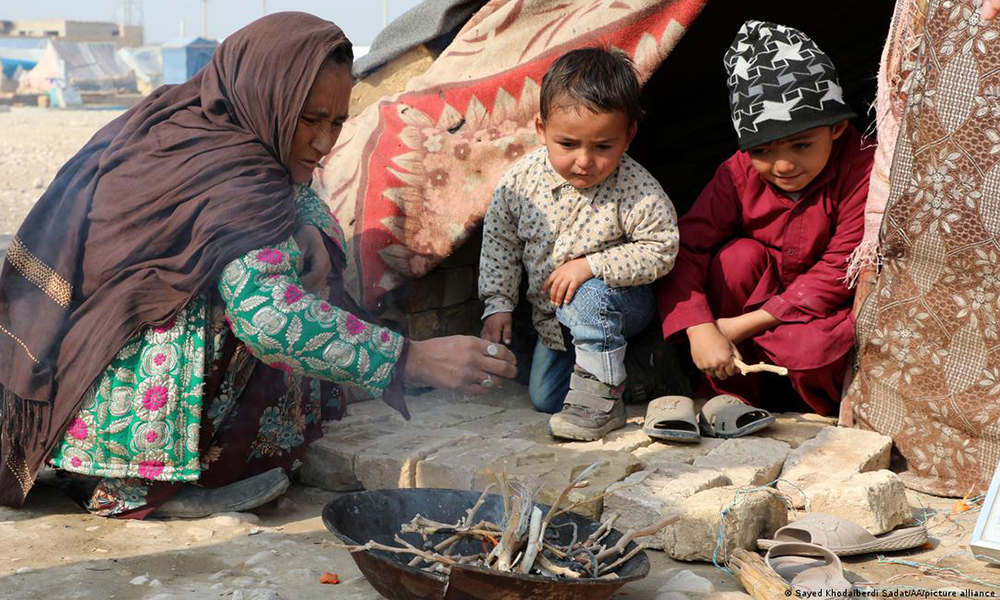Latest News
UN envoy optimistic about peace prospects in Afghanistan

The UN’s top envoy in Afghanistan said the country now has a unique opportunity to turn the corner to a brighter, more stable future after four decades of war.
Deborah Lyons via a video conference told the Security Council on Thursday that even as an unprecedented global pandemic threatens to unravel many of the hard-won socio-economic gains Afghanistan has made over the years, there is now a moment of “emerging hope.”
The UN envoy, who is the Secretary-General’s Special Representative for Afghanistan, said she is “cautiously optimistic” that the talks between the Islamic Republic of Afghanistan and the Taliban negotiation teams will start in the next few weeks in Doha.
“As the two sides embark on what will likely be a long and complex series of talks, I have encouraged them to show the necessary flexibility and foresight, the commitment to peace and, most importantly, compassion for their people that will be needed to bring these negotiations to a successful conclusion,” she told the Security Council.
Lyons, who is also head of the UN Assistance Mission in Afghanistan (UNAMA), described how the formal announcement of a three-day Eid ceasefire by the Taliban and the Government led to a welcome and much-needed reduction in violence.
“A reduction in violence is essential to an environment conducive for peace talks and to pave the way for an eventual permanent ceasefire,” she stressed, telling the Security Council that the United Nations stands ready to support direct peace talks and noting that she has been in discussion with both sides to identify and address their needs, going forward.
The UN envoy described how she has engaged with partners from the region and beyond, and said she is confident that a constructive atmosphere for the peace process can be fostered. But at the same time as new opportunities for peace emerge, she said, COVID-19 is casting a shadow over daily life in Afghanistan.
“Under the leadership of the Afghan Government, the UN is supporting a coordinated response to fight this epidemic,” she said, pointing out how she is counting on the continued generosity of the international community to allow the United Nations to carry forward with the Afghan Government an essential response to the COVID-19 pandemic.
“By working together, we can overcome #COVID19 and support #Afghanistan at the beginning of its nascent peace process so that its people can finally achieve the lasting peace they deserve.” – UN envoy @DeborahLyonsUN tells Security Council. More: https://t.co/4VUs83dcEC. pic.twitter.com/d0lnJkOrjZ
— UNAMA News (@UNAMAnews) June 25, 2020
In addition to presenting an update on prospects for peace and the fight against COVID-19, Lyons highlighted developments in human rights and the humanitarian situation. She spoke about the harsh realities of life for many Afghans and the human cost of Afghanistan’s conflict, which continues to take a devastating toll on civilians, especially children.
In closing, Lyons stressed that COVID-19 is not just a health crisis. She called it a “multi-dimensional crisis impacting an already fragile country.” But by working together, she said, we can overcome COVID-19 and support Afghanistan at the beginning of its nascent peace process so that its people can finally achieve the lasting peace they deserve.
“The UN will continue to stand in partnership with the Afghan people through this time of unprecedented challenge and fragile hope,” she said. “The Afghan people will look to the guidance, to the support, and to the unity of this Council as they chart their way forward on their long road to peace.”
Latest News
Over 6,000 acres of land cleared of poppies in Badakhshan

Badakhshan Police Command says it has cleared more than 6,000 acres of poppy fields in northern Badakhshan province.
The anti-narcotics department of Badakhshan Police Command says that since the beginning of the campaign to destroy the poppy fields in this province, they have cleared more than 6,000 acres of land.
According to these officials, poppies have however been planted in more than 10 districts this year.
The anti-narcotics department of the Badakhshan Police Command says that the campaign to destroy the poppy plantations started two months ago and continues.
According to the officials, during this period, 6,300 acres of land has been cleared.
Some of the farmers whose fields were destroyed say that poppy is more profitable than other agricultural products, but now that their land has been cleared, they want alternative crops.
According to the officials, Kishim, Argo, Darayimand and Jurm districts are among the districts where poppies are cultivated.
Latest News
MSF ‘deeply concerned’ over new phase of deportations of Afghans from Pakistan

Médecins Sans Frontières (MSF) said Wednesday it was deeply concerned for the rights and welfare of Afghan refugees in Pakistan in the wake of the recent announcement by Islamabad that it plans to start Phase Two of the deportation campaign.
Pakistan is home to an estimated 3.7 million Afghans, and a reported 500,000 have crossed the border so far.
Many Afghans living in Pakistan have been there for decades and have spent more time in the country than their country of origin, without any legal recourse to remain in the only place they can effectively call “home”.
For many Afghans, Islamabad’s “repatriation” campaign means packing up their belongings and carrying them on a horse, cart, car and bus and traveling en masse to a country that is already struggling with widespread poverty, inadequate health services and increased restrictions on women, MSF said in a statement.
The second phase of the deportations leaves an estimated 800,000 Pakistan-issued Afghan Citizen Card (ACC) holders vulnerable to return, while phase three is expected to result in the further deportation of UNHCR-issued Proof of Registration (PoR) card holders, MSF said.
MSF first started working in Pakistan in 1986, and today provides much-needed medical care to people in Balochistan, Khyber Pakhtunkhwa and Sindh provinces.
The Islamic Emirate of Afghanistan (IEA) and UN agencies estimate that more than half a million people have been deported from Pakistan or voluntarily returned to Afghanistan in the past six months.
The United Nations High Commissioner for Refugees said last month that nearly two million Afghan refugees are living in Pakistan and that the agency needs $368 million this year to assist these people.
Latest News
2023 marred by ‘tremendous challenges’ for Afghanistan

Last year, 2023, was a year of “tremendous challenges” for the people of Afghanistan, but it was also a year marked by resilience and determination, the Deputy Special Representative of the Secretary-General, Resident and Humanitarian Coordinator, Indrika Ratwatte, said in the UN’s annual report on Afghanistan that was published this week.
Ratwatte said: “In the face of adversity and multiple concurrent shocks, the people of Afghanistan have demonstrated remarkable courage and strength.”
Afghans now mention access to food as their most pressing need, he said adding that “unable to pay for or produce basic sustenance, millions face hunger and malnutrition.”
In 2024, an estimated 15.8 million people will experience crisis and emergency levels of food insecurity.
The majority of the population is unable to procure basic needs such as healthcare, food, livelihoods, and housing, the report stated.
The UN found that the country also remains vulnerable to climate change.
Following the worst drought in three decades, emerging El Niño conditions now threaten a new cycle of flooding and crop pests. In this context, lifesaving humanitarian aid has been crucial in preventing the collapse of the social fabric. It has also served to underpin the stability of the economy. Despite growing humanitarian needs, relevant funding cuts have forced humanitarian actors to prioritize the most vulnerable further, the report stated.
A Gallup poll found that 95 percent of the population consider themselves to be suffering. In addition to living in poverty, the average life expectancy in Afghanistan has been falling for the past five years.
The Herat earthquakes and unprecedented large-scale returns of refugees from neighbouring countries, including Pakistan and Iran, have shown the disruptive impact of recurrent shocks and underscored the need for sustained international engagement and support, the UN stated.
“As we embark on the next chapter, in 2024, it is imperative that we remain steadfast in our commitment to the principles of human rights, gender equality, and women’s Empowerment,” Ratwatte said.
“We will continue to include women as key partners in our work, to provide assistance ‘by women, for women’, and to tirelessly work for equal access to education in line with the demands we hear from Afghans in all areas of the country,” he said.
However, from an economic point of view, Afghanistan’s economy appears to be stabilizing at a low equilibrium level following a period of significant contraction since 2021.
The UN said in the report that growth barriers include severely restricted operations in the banking sector (including microfinance institutions), trade disruptions, and institutional issues hindering service delivery, including in the private sector.
“The sudden cessation of a significant amount of international aid and grants, which had accounted for 40 percent of the country’s Gross Domestic Product (GDP), along with a freeze on international reserves amounting to about US$9 billion and the imposition of international sanctions, caused a severe balance of payments, banking and payment systems crisis.
“Notably, financial restrictions have removed liquidity from the banking system,” the report stated.
Despite the crisis and a period of devaluation towards the end of the year, the AFN is 20 percent stronger than it was in 2021 due to currency export controls, UN cash shipments of US dollars into Afghanistan, and personalremittances.
Imports continued to surpass exports through 2023 and increased as the economy contracted.
“This appears to be a paradox: the currency appreciated while the trade deficit widened, suggesting that there might be other unidentified sources of financing besides US dollar cash shipments and remittances to support the account deficits,” the report read.
The UN also said that with its partners, it will work to initiate a dialogue with the Islamic Emirate on adjustments to regulatory frameworks and sustained public service delivery with the aim of creating a long-term and sustainable pathway to reduce aid dependency and put Afghanistan back on a path towards development
“In this regard, we reiterate our offer to the DFA for a dialogue and will work jointly with international partners, donors, and Afghans on how such engagement can be structured in a most productive way.”
-

 Sport5 days ago
Sport5 days agoACL draw to be broadcast live on ATN channels
-

 Sport4 days ago
Sport4 days agoACL fever grows as fixtures finalized
-

 World4 days ago
World4 days agoUS will not take part in any Israeli retaliatory action against Iran
-

 Latest News4 days ago
Latest News4 days agoOver 50 people dead in traffic accidents over Eid
-

 Latest News4 days ago
Latest News4 days agoUS identifies Kabul airport suicide bomber
-

 Business4 days ago
Business4 days agoAfghanistan-Kazakhstan chamber of commerce opens in Herat
-

 Latest News4 days ago
Latest News4 days agoGood rains enable DABS to increase power production in Kabul
-

 World3 days ago
World3 days agoIsraeli military vows response to Iran attack as calls for restraint mount
























